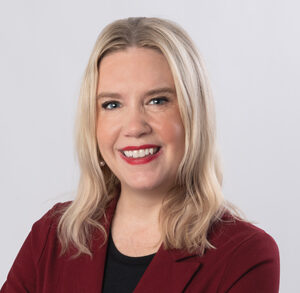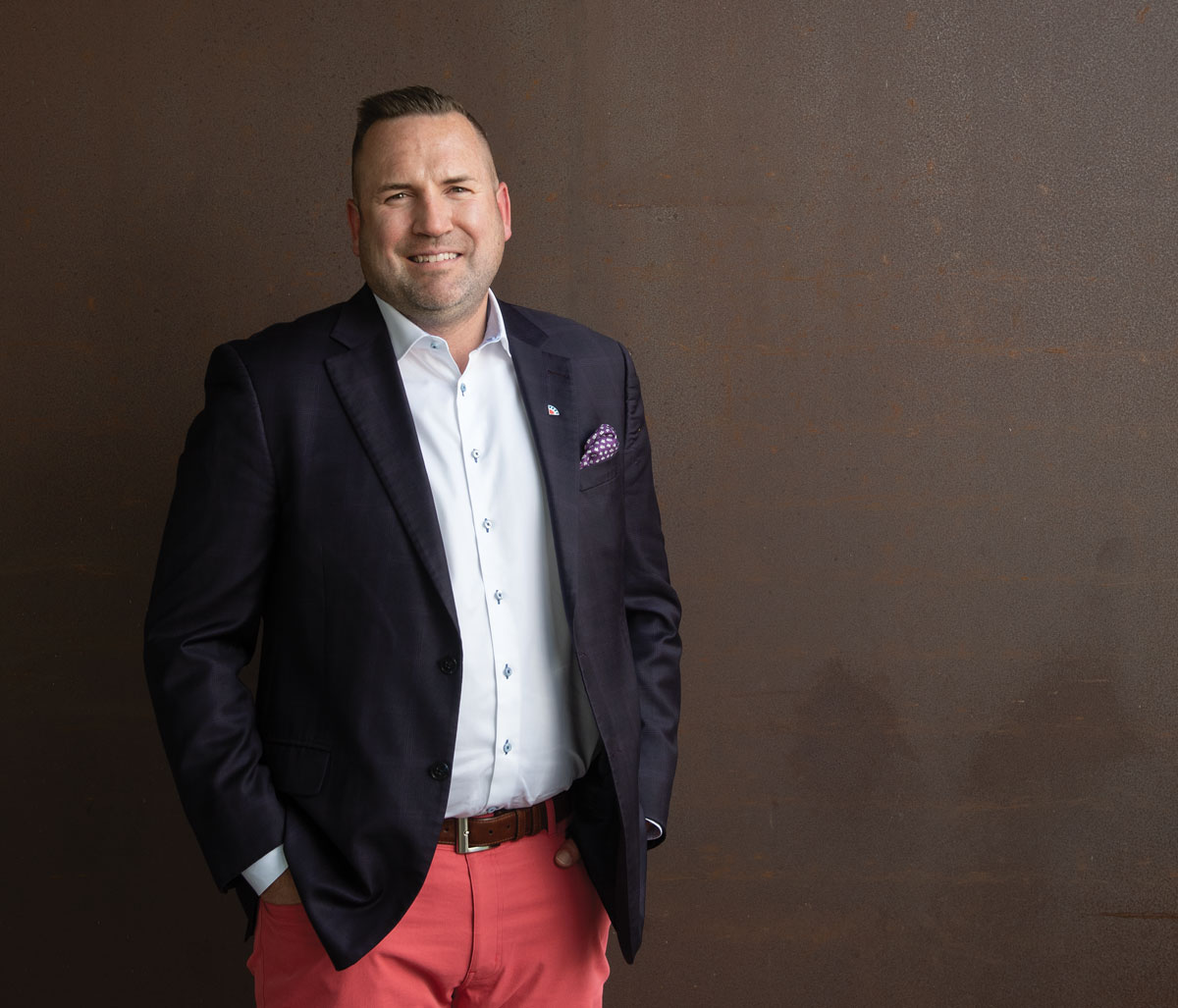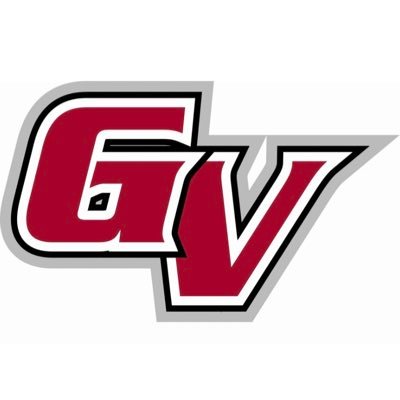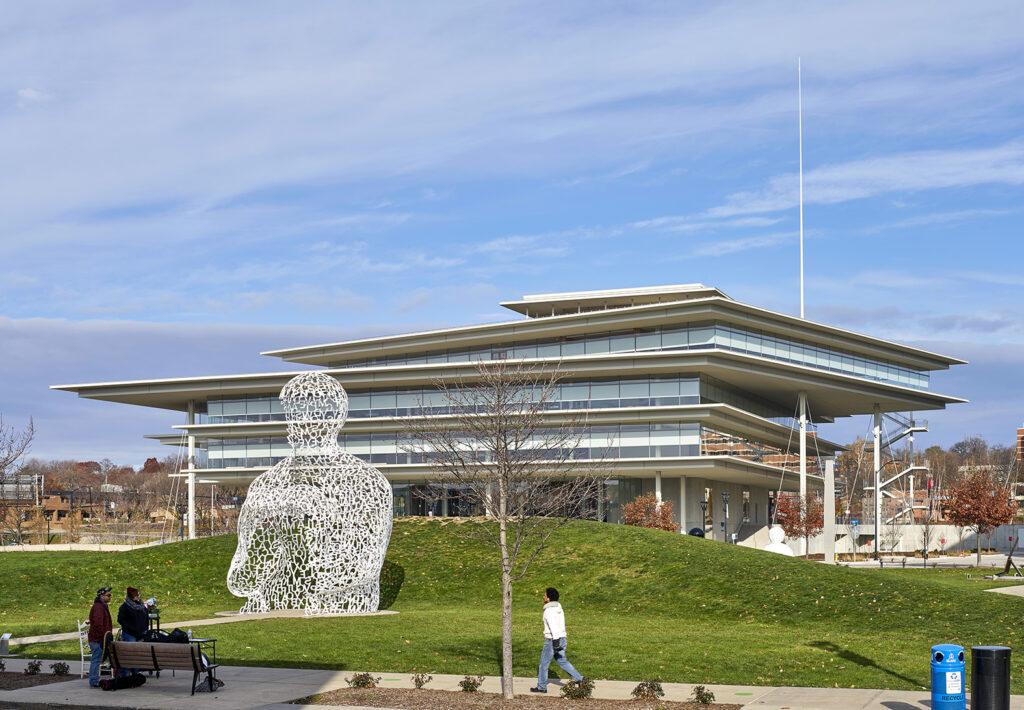How football inspires Pharmacists Mutual CEO Aaron Pearce

Lisa Rossi Aug 15, 2025 | 6:00 am
13 min read time
3,025 wordsA Closer Look, All Latest News, InsuranceAaron Pearce, president and CEO of Pharmacists Mutual Insurance Co., is also a football coach.
His first year of coaching was during his third year of law school. When he moved to Iowa, he coached sixth- and seventh-grade football and then worked on the coaching staff at Roosevelt and Dallas-Center Grimes.
Football has influenced Pearce as a leader, he said.
“I think that that process taught me so much about myself, particularly getting me out of my comfort zone, watching and learning from other people and how they like to approach issues and lead or engage in cultural transformation,” he said. “Motivating 15- through 18-year-olds to work together can be kind of tricky.”
He said it’s an environment that can teach “constant learning, constant improvement, deep relationships, honesty and communication.”
In July 2023, Pearce became president and CEO of Pharmacists Mutual, which provides professional liability and business and malpractice insurance to pharmacists and other health care professionals. He succeeded Edward Yorty. Pearce previously served as vice president and general counsel for several of Berkley Insurance Co.’s operating units.
Pearce is a former chair of the Des Moines-based annual Global Insurance Symposium and is president of the Iowa Insurance Institute.
The Business Record sat down with Pearce to talk about the challenges and opportunities of his new position.
This Q&A has been edited for length and clarity.
What first attracted you to this position at Pharmacists Mutual?
For a long time, I worked as an attorney in the insurance industry, from 2008 to 2023, so that’s a long time. I enjoyed that and enjoyed the job I had at the time when this opportunity came up. I wasn’t in a position where I was unhappy or was thinking, ‘I’m going to go out and be CEO somewhere.’ But at the same time, I’d always considered the possibility that at some point I was going to make a turn and have to commit to management or staying in law the entire time. A lot of the work I had done straddled the line between strategy and management and also still working as legal counsel and compliance counsel for regulatory work, so what I had landed on was I knew that at some point I would value the opportunity to take on a challenge like this.
I knew that for it to make sense for me and for my wife, it probably needed to be a smaller company. I wanted it to be a company that was focused on commercial lines. That’s just an area of business that I have the greatest comfort and level of interest in. I wanted it to be something where the value proposition around it was a specialty or a niche package of products, and it needed to have a great story behind it. If those things were in place, then it was probably OK to take a phone call. When I got a call about Pharmacists Mutual, the added benefit that it was also in [my and my wife’s] home state and an industry that’s really given us both incredible careers, that only added fuel to the fire. I was interested to come in and assume the role of CEO at a company that had gone through a substantial amount of financial adversity. I think we’re working out of it, but a pretty dire situation, and to be able to come in and ideally be the guy that’s going to right the ship, get a turnaround going and put a company with 115 years of really awesome history back on track to continue to sustain that story. It met those criteria, and on top of it, it was a company with an incredible amount of heritage in the very state that has created my career, so it wasn’t hard to say yes.
What was the financial adversity that you encountered?
The company had gotten into underwriting some areas of commercial risk, but it didn’t have adequate knowledge or expertise. Like any form of insurance, whether it’s the product or the underwriter, when the two come together, they have to be adequately designed and trained to understand what they’re underwriting. It’s no different than any other investment decision you would make. The person that manages your 401k, you want them to know the right things about how to build that asset mix and make the portfolio perform. Commercialized underwriting is the same way. So at that point in time, the company decided to start underwriting grocery stores and getting into some other businesses, which isn’t an indictment on those parts of the economy, but they didn’t know anything about how to underwrite them. When you have that happen with an insurance company, you get very negative results, and that can cause a lot of financial problems.
Why did they decide to go that path?
I think there was a desire for trying to find some growth. Our history is obviously in pharmacy, and we still are committed to that market. But you also see grocery stores and pharmacies together. There was an assumption that they were casually enough related, you could underwrite them the same way. But the bottom line is, they’re not the same types of business, and unfortunately, our organization had to go through a painful period of time.
So, you’re working to turn things around financially. How has that been going?
It’s going great. Underwriting results are a lot like GPAs. They fall fast and they’re hard to raise. But I think for where we’re at, at essentially 18 months in, the plan that we have has a three-year window to it. It’s either on track or ahead of schedule. We had a very good first quarter in 2025, which is about a year after making some strategic decisions about how we were going to underwrite and particularly the distribution partners we wanted to work with. And I think that’s going very well. We had a very strong first quarter. Anytime you have a combined ratio below 100, and ours is substantially below 100, you’re off to a good start. The easiest way to quantify that is combined ratios can be a combination of the claims you pay and your expenses. And if it exceeds 100% then you are spending more than you took in. What you want to see at the end of the day is a combined ratio below 100, which is indicative that you are making money.
What are the biggest challenges you are facing right now?
One of the hardest things out there for us is we were a company with a great amount of history, but we’re also, in some ways now, a very new entrant into some pre-established and developed, commercialized, focused markets. For a long time, we were very closely affiliated to pharmacy, mutual insurer, but also homeowners. We owned the life company until probably about five or six years ago, which is kind of a generalist identity market, and that’s very different from what we do today. So in terms of challenges, it’s continuing to drive that new area forward and helping make sure that the right parts of the commercial lines market understands that.
What do you see as the opportunities?
The opportunities are tremendous, because there’s one part of the U.S. economy that’s destined to continue growing. Knock on wood, it’s health care, and where we’ve decided to stay committed, in terms of a business focus, is being a dedicated commercial lines, niche underwriting company focused on health care. And within that, we see a tremendous amount of innovation and constant market capacity growth. There’s a ton of great care providers out there that we know we’re well suited to serve, so the opportunities are endless. There are also great independent agent partners all over the country. We write nationally — that works in this area of specialty, and they’ve shown so far to be very open and willing to find new carrier partners to work with. We’re grateful for that, and that’s where the opportunity is going to come from. We also own an insurance agency, which can also sell products nationally. Growing that is going to be equally exciting.
What are the biggest problems that you see for the people you serve, and how are you working to address those?
We have to remember first and foremost, they’re all businesses, right? And that means they feel the same pressure that every other small- to medium-size or larger enterprise in the United States faces. If you own a string of dental practices, you want to add another location, and the price of building materials goes up, it’s going to be more expensive for you to try to grow. If you have a claim, it’s going to be more expensive to replace your building. Like the same economic factors that frustrate every business owner, I think, apply to anybody in the health care industry as well, especially when they’re also the owner and practitioner.
I think broadly, that’s a set of challenges that we’re all going through right now and feeling in different ways. For an insurance company, it might only be revising costs of sourcing new computers for an individual trying to grow a veterinarian practice. It might be how quickly can they access new equipment for X-ray machines? On a state-by-state basis, you can run into more nuanced challenges. Certainly, one of the things we see here in Iowa right now that’s really of interest, particularly to the community retail pharmacy world, is pharmacy benefit manager reform. That’s an item of extreme interest to every state, trade and community retail pharmacy around the country. We certainly care about that issue, because we want the health care practitioners, like those great pharmacists that we serve, to be able to have an optimal business environment, but it’s an issue that they’re also better situated to take on, so we’re supportive of that at an appropriate level.
Are there other changes you’ve made since coming on board?
I think we’ve been really lucky as we’ve evolved and completed an exit from personal lines about a year ago. Now, we brought in some new colleagues with greater areas of commercial lines experience to augment our current staff, and I think that’s been a great experience for everybody. Anytime you get to bring in people from other places, two things happen: making relationships and everybody learns from each other. We’ve seen a lot of that out amongst the employee base, and I think that’s gone very well. We allow remote work from anywhere in the U.S., so we have a fairly broad approach to where we’re going to recruit. I think that’s helped us out quite a bit. Later this year, we’re leading a reorganization to become a mutual holding company, although on a limited basis, which is just changing our corporate structure to create a little bit more flexibility in how we manage our business and keep our agency, our retail operation and our underwriting operation best positioned to be successful.
How do you get buy-in as a leader?
I think the No. 1 thing I try to prioritize, it’s not [about] being liked, it’s [about] being completely honest about whatever the thing is. We don’t sugarcoat things. We talk about what reality is. One of the phrases I’ll use a lot is, ‘This is the metric for success,’ so whether you’re in an employee town hall and talking about how the company is performing, or you’re getting ready to experiment with a new idea and need to evaluate it, it’s setting an environment where people feel empowered and that they have the safety to speak freely and offer their expertise. I like to joke that we pay people for what’s between their ears, and we want them to be candid. We want them to be constructive. If you’re doing those things, we’re always going to appreciate the ideas and the dialogue that come with it, and then we’re going to be equally as frank about what’s working and why it was a success or what needs to change to make it better. I think bringing those attributes to the culture of Pharmacists Mutual and just sticking with this mantra, ‘I’m going to be painfully obvious,’ has worked really well, and I think that’s been refreshing for employees.
Is artificial intelligence involved in your work at all? Are you using systems to make life easier for yourself and your employees?
We are definitely looking at ways to integrate it. I kind of view AI like some of the other innovations that have come out. One, it’s probably been with us longer than we’ve realized. And two, it’s not an outcome. It’s a tool or a system that you insert into a workflow to make the outcome from the workflow better. I think in our company, we would much rather take a thoughtful and deliberate approach, rather than just rushing to the finish line to say, ‘Hey, we’re using AI,’ which I think you can see companies sometimes make that mistake in the interest of wanting to appear progressive ahead of [being] strategic.
Are there any new technologies you’re using that have really helped you?
Our current platform is undergoing some review right now to better answer that question, but I think AI is going to play a part in the answer to that question. Certainly, when you look at small commercial underwriting, it’s more and more heavily automated, so I see it playing a role there and I think we’re going to be able to do some things in the claim space that are going to help quite a bit.
What do you think are the biggest challenges that insurers are facing right now?
I think one of the most important challenges across the board that as a society we need to confront is how we can help the end users of our product better understand how the product functions and what its limitations are, particularly looking at the state of Iowa and a lot of the conversations we’ve seen in the last few years between industry and the Legislature. In any part of business, I think there needs to be a continued amount of attention on how we can help insurers best understand what the product is going to do. Because the product, like anything else, is designed to do certain things. It has limitations. It’s a contract, but it’s essentially a financial tool. If you take it beyond what it’s designed for, it can create real havoc, or if it’s not priced correctly, that can create real economic havoc.
That conversation needs to continue and probably become even more in-depth, because there have been some really horrific property losses in our state due to weather, but those probably are going to unfortunately happen again, and we need to be ready as a community of carriers, insurers and agents alike, to really have a thoughtful conversation where everybody understands. I don’t think the consumer comprehension is where it needs to be. I think there’s a perception, or maybe a misunderstanding sometimes that policies can cover more than what they’re designed to do. That’s why we’re proud to work with independent agents, but the relationship between the carrier and the purchaser of the product is important. Their agent is one of the most important communicators throughout the whole thing, because they’re with the insured every step of the way, and it can be a great intermediary for dialogue between the company and the insurer for the insured business. We really want to see those relationships stay strong.
Besides football, what has influenced you as a leader?
I’m a big student of history to this day, so like everybody, I’ve got my favorites as far as characters and history. George W. Bush and his approach to building teams of people around him – I think he’s a great example of a leader who did that. I have been very lucky, and I’ve had a good career, and got to get some great education, but I’m never going to know everything, and I thought that was a president who just did a very good job of understanding how to bring those people in and around him. I’m a big fan of George Patton for the way that he was just constantly motivated to keep people thinking and feeling. I call it playing offense, pushing forward, doing more, going somewhere in the next game, being resilient. I really like Ulysses S. Grant. He’s like the fun underdog story. Graduated last in his class at West Point.
Is there anything else you want to add?
I think one of the other interesting changes we’ve had is just philosophically, how we think of ourselves as a company. I want to highlight 115 years of heritage serving independent pharmacy. Nothing’s changed. We’re just as committed to that today as we were 115 years ago. But I also think, as I reflected on the story, the guy that founded the company, he was a pharmacist who saw a need and took a chance. That, to me, is the heart of an innovator, the heart of a risk taker — somebody who wanted to engage in informed risk-taking to solve a problem for a really important part of how our society functions. When we don’t have health care and good access to it, bad things can happen. To me, what that really says about our future is our businesses are serving or caring for those who take care of us and our families and our community. That is really the mission of our company. Now I see it as having evolved to that very important and inspiring daily call. They take care of us, and we need to take care of them.
At a Glance
Hometown: West Des Moines
Family: Married, one dog
Education: Bachelor’s degree in social science, Central College; Juris Doctorate degree, Ave Maria School of Law; Master of Business Administration, University of Iowa Tippie College of Business
Resides: Algona
Hobbies: Cook, read and play golf

Lisa Rossi
Lisa Rossi is a staff writer at Business Record. She covers innovation and entrepreneurship, insurance, health care, and Iowa Stops Hunger.











